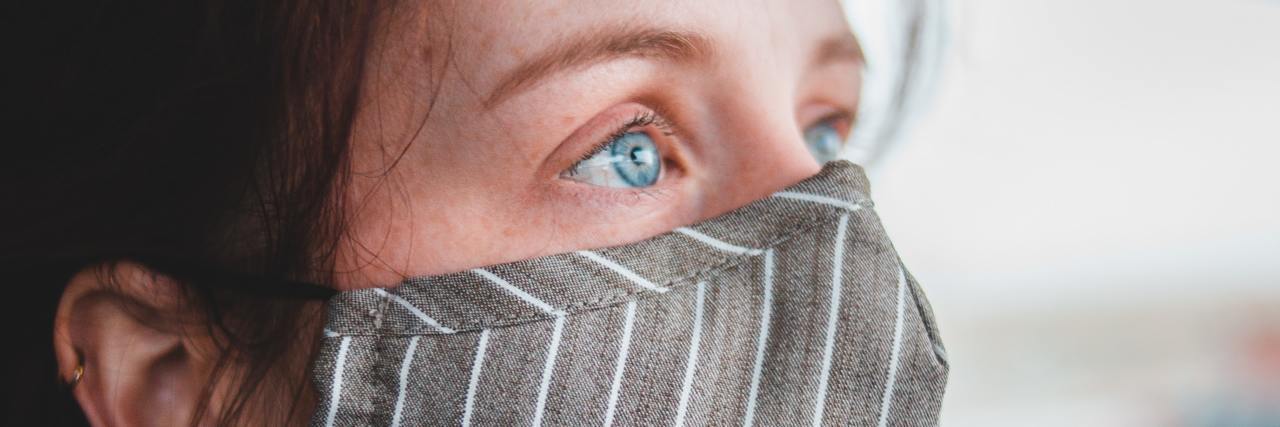For many of us, life is somewhat returning to “normal” post-pandemic. After over 15 months of isolation and stay-at-home orders, though, it’s not surprising that a large percentage of the population is dealing with new-onset social anxiety.
Speaking from personal experience, I know that returning to “normal” can be tough once you’ve grown accustomed to the comfort of social isolation. However, these five tips can help you cope with your post-lockdown social anxiety, no matter how severe it has become.
1. Cope Ahead.
Although we can’t predict the future, we can always prepare for scenarios that might occur with any event in our lives. This is where the Cope Ahead skill comes in handy.
If you aren’t familiar with Cope Ahead, it’s a skill from dialectical behavior therapy (DBT) that can help individuals prepare for stressful situations. By rehearsing ahead of time, you can reduce the stress you experience in the moment and can cope with any emotions you feel during the event by using the skillful responses you practiced.
I have personally used Cope Ahead post-lockdown to rehearse grocery shopping and dealing with strangers who won’t wear masks. However, the Cope Ahead skill can also help you rehearse conversations with people you haven’t seen in a while, dealing with crowds or even using mass transit post-lockdown. You just need to think about all the possible situations you may encounter, then map out responses or actions to take for each one.
2. Start with small exposures.
Believe it or not, dealing with social anxiety is a lot like dealing with past trauma — you eventually need small exposures in a safe environment so you can lower your emotional response. Unfortunately, this means tackling your fear head-on through real-life, or in vivo, exposure therapy.
You don’t have to start with a crowded rock concert, though. In fact, small in vivo exposures can help your body learn to cope so that you can eventually take on larger exposures.
To start, try meeting one or two friends for a quick coffee date. You can even meet at an outdoor venue like a park or hiking trail. Alternatively, if leaving the house terrifies you, see if a few close friends could come over to your place for a board game night or Netflix marathon.
Over time, these small exposures should feel less anxiety-inducing, and you can acclimate yourself through other social situations. It may also help to make a list beforehand of the most stressful social situations for you personally and work your way up the list so that you save the most difficult situations for later in the process.
3. Self-soothe.
Even if you plan ahead and start with small exposures, you may still experience distress when out in public. When you notice even small symptoms of anxiety, though, you can use self-soothing techniques to lower your emotional intensity and calm your body down.
Although there are lots of ways to soothe yourself, some of my go-to options include playing with my fidget cube or gently tracing over one of the tattoos on my arm. Sometimes I also use paced breathing or progressive muscle relaxation when I feel extremely anxious or overwhelmed.
The trick is finding activities that help you ground yourself and experience relief from your anxiety — even if it’s only temporary.
4. Rely on routines.
Routines provide structure, consistency and predictability into your day. This predictable structure often helps people with anxiety because they know what to expect, which means they don’t have as many variables to worry over.
Even if you’re dealing with newly developed social anxiety post-lockdown, relying on your routines can help. In fact, you can even structure your routines to avoid peak traffic hours at the grocery store or to only include social events on certain days. Then, follow your routine and face your fears — you got this!
5. Talk to your therapist.
Sometimes we all encounter circumstances that we can’t possibly tackle alone. In the case of social anxiety, therapists are specifically trained to support you and assist you as you face your fears.
If you don’t already have a therapist, consider using Psychology Today to find a provider in your area who would be a good match. You can also look into teletherapy providers on sites like BetterHelp or Talkspace.
Social anxiety can feel overwhelming, especially if you’ve never experienced it before the pandemic. However, you can absolutely use these five suggestions to help you cope with the emotions and physical sensations that come with your social anxiety.
Photo by Erik Mclean on Unsplash

